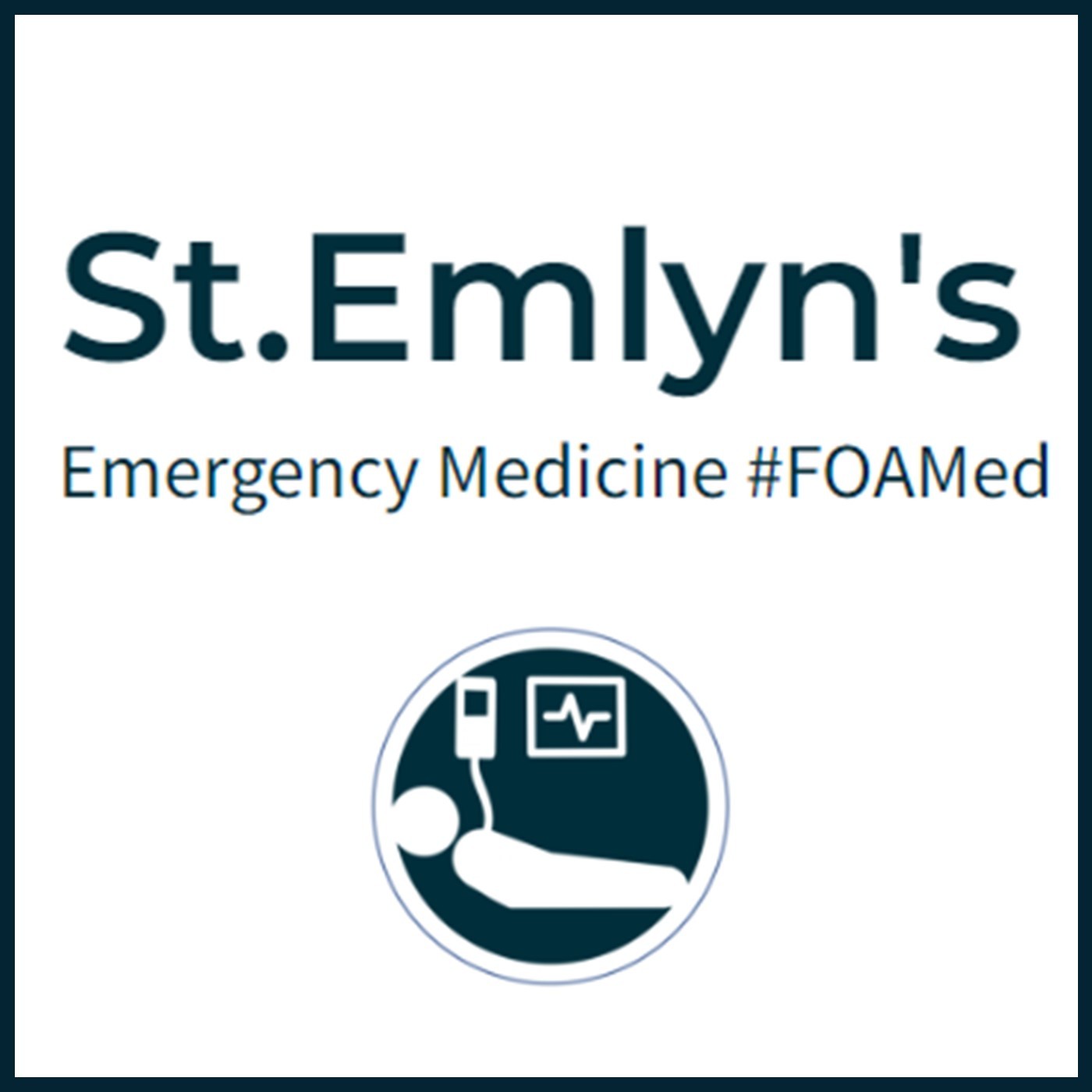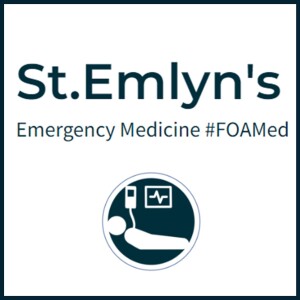
1.3M
Downloads
272
Episodes
A UK based Emergency Medicine podcast for anyone who works in emergency care. The St Emlyn ’s team are all passionate educators and clinicians who strive to bring you the best evidence based education. Our four pillars of learning are evidence-based medicine, clinical excellence, personal development and the philosophical overview of emergency care. We have a strong academic faculty and reputation for high quality education presented through multimedia platforms and articles. St Emlyn’s is a name given to a fictionalised emergency care system. This online clinical space is designed to allow clinical care to be discussed without compromising the safety or confidentiality of patients or clinicians.
Episodes

Saturday Oct 21, 2017
Ep 99 - October 2017 Round Up
Saturday Oct 21, 2017
Saturday Oct 21, 2017
Navigating the Landscape of Emergency Medicine: Insights from St. Emlyn's
Welcome to St. Emlyn's, your go-to resource for the latest in emergency medicine. Our recent discussions cover a range of topics, from evolving communication strategies in major incidents to the nuances of managing chronic health issues among healthcare professionals. Let's dive into key insights and updates from our blog and the recent College of Emergency Medicine conference.
Modernizing Major Incident Communication
Traditionally, emergency departments relied on landlines and telephone trees for major incident alerts. However, modern digital tools like WhatsApp, Facebook, and Twitter offer more efficient solutions. Inspired by incidents like the Manchester bombing, our recent blog post details how to set up a robust communication system using WhatsApp. This involves configuring specific alert tones and ensuring confidentiality, providing a quick and reliable way to mobilize staff during crises.
Clots and Immobilization: Current Research and Practices
Clot management, especially in the context of immobilization, remains a critical area of study. Dan Horner's work, including the Tilly study, explores whether prophylactic low molecular weight heparins should be used for patients with injuries like Achilles tendon ruptures. Current guidelines suggest a nuanced approach, advocating for patient-specific discussions based on individual risk factors for DVT. This research highlights the importance of personalized treatment and continuous guideline updates.
The Role of Ultrasound in Managing Superficial Vein Thrombosis
The management of superficial vein thrombosis (SVT) has been another focus. Using ultrasound, as Dan Horner suggests, can help assess the extent of SVTs and determine the need for anticoagulation, particularly when SVTs are near the saphenofemoral junction. This approach ensures comprehensive care and prevents complications from missed DVT diagnoses.
Global Perspectives: Insights from South Africa
Our collaboration with UK physicians working in South Africa provides a global perspective on emergency medicine. Despite resource limitations, the dedication to delivering quality care remains consistent across continents. This exchange of knowledge reinforces the universal principles of emergency medicine, emphasizing adaptability and resourcefulness.
Addressing Chronic Health Conditions in the Workplace
A guest post by Harriet, a Manchester-based emergency physician with rheumatoid arthritis, offers insights into managing chronic health issues while working in emergency medicine. Harriet's story highlights the physical demands of the job and the need for supportive workplace practices. It encourages a more inclusive approach, ensuring that all healthcare professionals can perform at their best, regardless of health challenges.
Re-Evaluating Oxygen Therapy in Acute Coronary Syndromes
Evidence-based medicine is at the heart of St. Emlyn's, and the DETO2X-AMI study has sparked significant discussion. This study suggests that supplemental oxygen may not always benefit patients with acute coronary syndromes, particularly those with normal oxygen saturation levels. This finding prompts a more tailored approach to patient care, aligning treatments with the latest evidence.
The Emergence of New Cardiac Biomarkers
Cardiac myosin-binding protein C has emerged as a promising new marker for early myocardial infarction diagnosis. However, Rick Body cautions that despite its potential, the transition from research to clinical practice involves numerous hurdles. The practical application of new biomarkers requires rigorous testing and regulatory approval.
Revisiting Tetanus Management
Chris Gray's exploration of tetanus management emphasizes the need for accurate administration of vaccinations and immunoglobulin. Despite being a well-known disease, misunderstandings about treatment protocols persist. Chris's post clarifies who needs boosters and who requires immunoglobulin, ensuring patients receive appropriate care.
Lessons from Mass Casualty Incidents
Zafira Kasim’s insights from the AAST meeting highlight critical lessons from mass casualty incidents like the Florida nightclub shooting and the Boston bombings. These experiences underline the importance of preparedness and the continuous updating of major incident protocols. The blog post provides practical strategies for refining emergency response plans.
The State of Emergency Medicine in the UK
The recent College of Emergency Medicine conference in Liverpool provided a comprehensive overview of the state of the specialty in the UK. Despite challenges like burnout and systemic pressures, the conference showcased a resilient and dedicated community. Presentations highlighted the importance of mental health, resilience, and compassion in maintaining quality care. Caroline Leach’s discussion on compassion underscored the emotional journey of healthcare professionals and the need for empathy in the workplace.
The Need for More Academic Involvement
The conference also stressed the importance of increasing academic involvement in emergency medicine. The UK currently has a low number of emergency medicine professors compared to other specialties. There is a strong call to foster the next generation of academic leaders, with initiatives like new NIH positions offering opportunities for growth.
Preparing for Winter: The Upcoming Challenges
As winter approaches, emergency departments anticipate increased patient volumes and complexity. At St. Emlyn's, we emphasize resilience and preparedness, supporting healthcare professionals through these demanding times. Our aim is to provide resources and knowledge to enhance patient care and professional satisfaction.
Looking Ahead: Embracing Innovation and Community
St. Emlyn's remains committed to keeping you informed and passionate about emergency medicine. Our upcoming podcast project will further engage and update you on the latest developments. We encourage you to explore our blog for the most recent posts, research findings, and expert opinions.
In conclusion, the field of emergency medicine is both challenging and rewarding. At St. Emlyn's, we are proud to contribute to this dynamic community, supporting the ongoing professional development of our colleagues. As we navigate the complexities of modern healthcare, we remain dedicated to providing the best possible care for our patients and ensuring the well-being of our medical community. Stay connected with us for continuous updates and insights into the ever-evolving world of emergency medicine.

No comments yet. Be the first to say something!